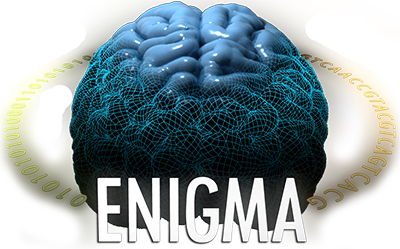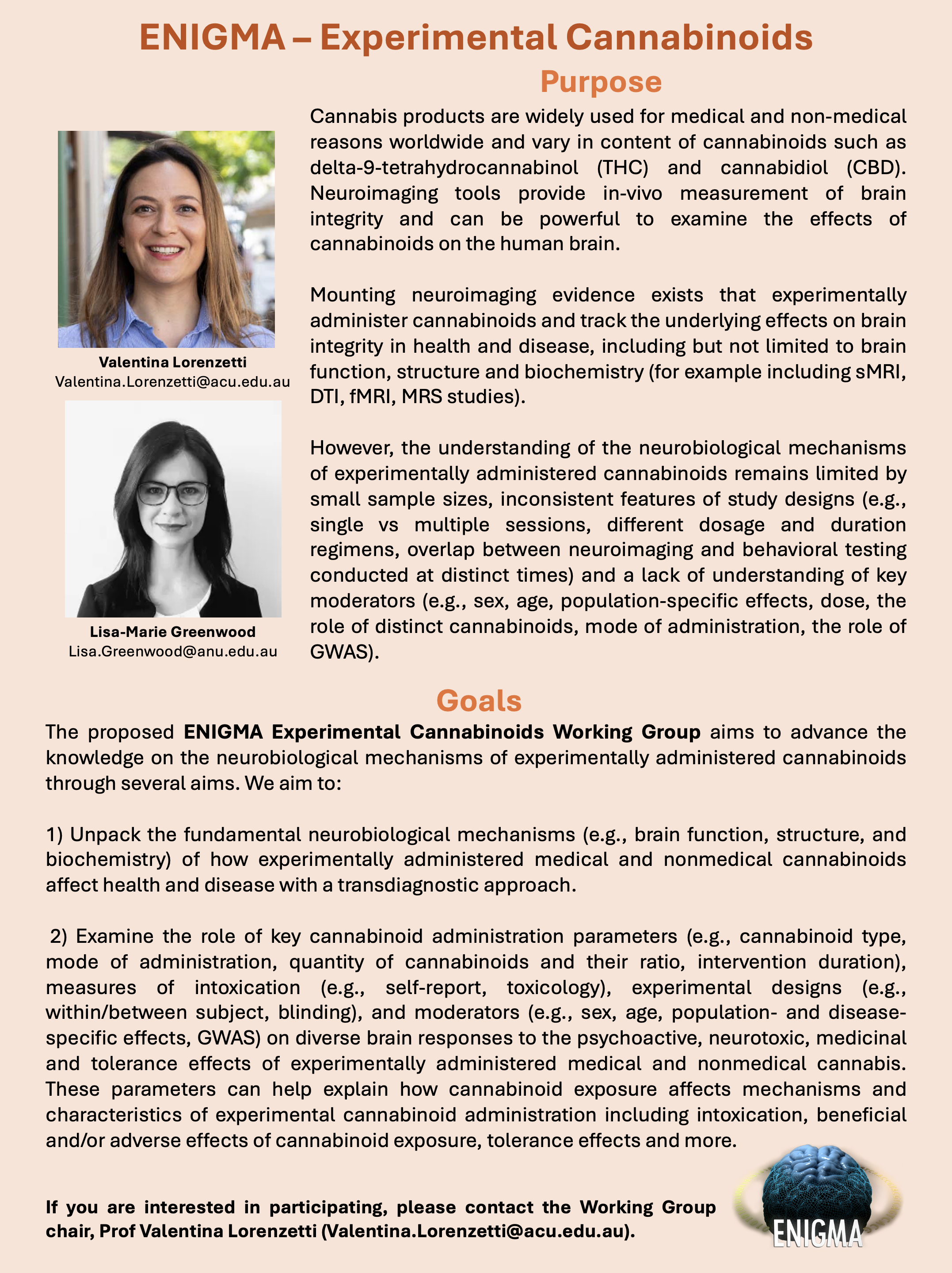
Purpose:
Cannabis products are widely used for medical and non-medical reasons worldwide and vary in content of cannabinoids such as delta-9-tetrahydrocannabinol (THC) and cannabidiol (CBD). Neuroimaging tools provide in-vivo measurement of brain integrity and can be powerful to examine the effects of cannabinoids on the human brain. Mounting neuroimaging evidence exists that experimentally administer cannabinoids and track the underlying effects on brain integrity in health and disease, including but not limited to brain function, structure and biochemistry (for example including sMRI, DTI, fMRI, MRS studies). However, the understanding of the neurobiological mechanisms of experimentally administered cannabinoids remains limited by small sample sizes, inconsistent features of study designs (e.g., single vs multiple sessions, different dosage and duration regimens, overlap between neuroimaging and behavioral testing conducted at distinct times) and a lack of understanding of key moderators (e.g., sex, age, population-specific effects, dose, the role of distinct cannabinoids, mode of administration, the role of GWAS).
Working Group Goals:
The proposed ENIGMA-Experimental Cannabinoids Working Group aims to advance the knowledge on the neurobiological mechanisms of experimentally administered cannabinoids through several aims. We aim to:
- Unpack the fundamental neurobiological mechanisms (e.g., brain function, structure, and biochemistry) of how experimentally administered medical and nonmedical cannabinoids affect health and disease with a transdiagnostic approach.
- Examine the role of key cannabinoid administration parameters (e.g., cannabinoid type, mode of administration, quantity of cannabinoids and their ratio, intervention duration), measures of intoxication (e.g., self-report, toxicology), experimental designs (e.g., within/between subject, blinding), and moderators (e.g., sex, age, population- and disease-specific effects, GWAS) on diverse brain responses to the psychoactive, neurotoxic, medicinal and tolerance effects of experimentally administered medical and nonmedical cannabis. These parameters can help explain how cannabinoid exposure affects mechanisms and characteristics of experimental cannabinoid administration including intoxication, beneficial and/or adverse effects of cannabinoid exposure, tolerance effects and more.
If you are interested in participating, please contact the Working Group chair, Dr Valentina Lorenzetti (valorenzetti@gmail.com).
ENIGMA-ENIGMA-Experimental Cannabinoids Working Group Memorandum of Understanding (MOU): ENIGMA ENIGMA-Experimental Cannabinoids Working Group members are asked to sign a short MoU agreement that has been standardized across ENIGMA projects and provides basic framework to protect data privacy, facilitate data sharing, encourage academic productivity, ensure appropriate authorship and publication credit, and implements a system to track and archive data, analyses and publications related to the ENIGMA-Experimental Cannabinoids Working Group.
ENIGMA-Experimental Cannabinoids IS LOOKING FOR NEW MEMBERS!
We are actively searching for international collaborators to join ENIGMA – Experimental Cannabinoids! The only prerequisites for joining as new members are collection of magnetic resonance imaging (MRI) data during, before or after the influence of experimentally administered medical/non-medical cannabinoids (acute and/or non-acute effects), and compliance with the ENIGMA Memorandum of Understanding (MOU).



